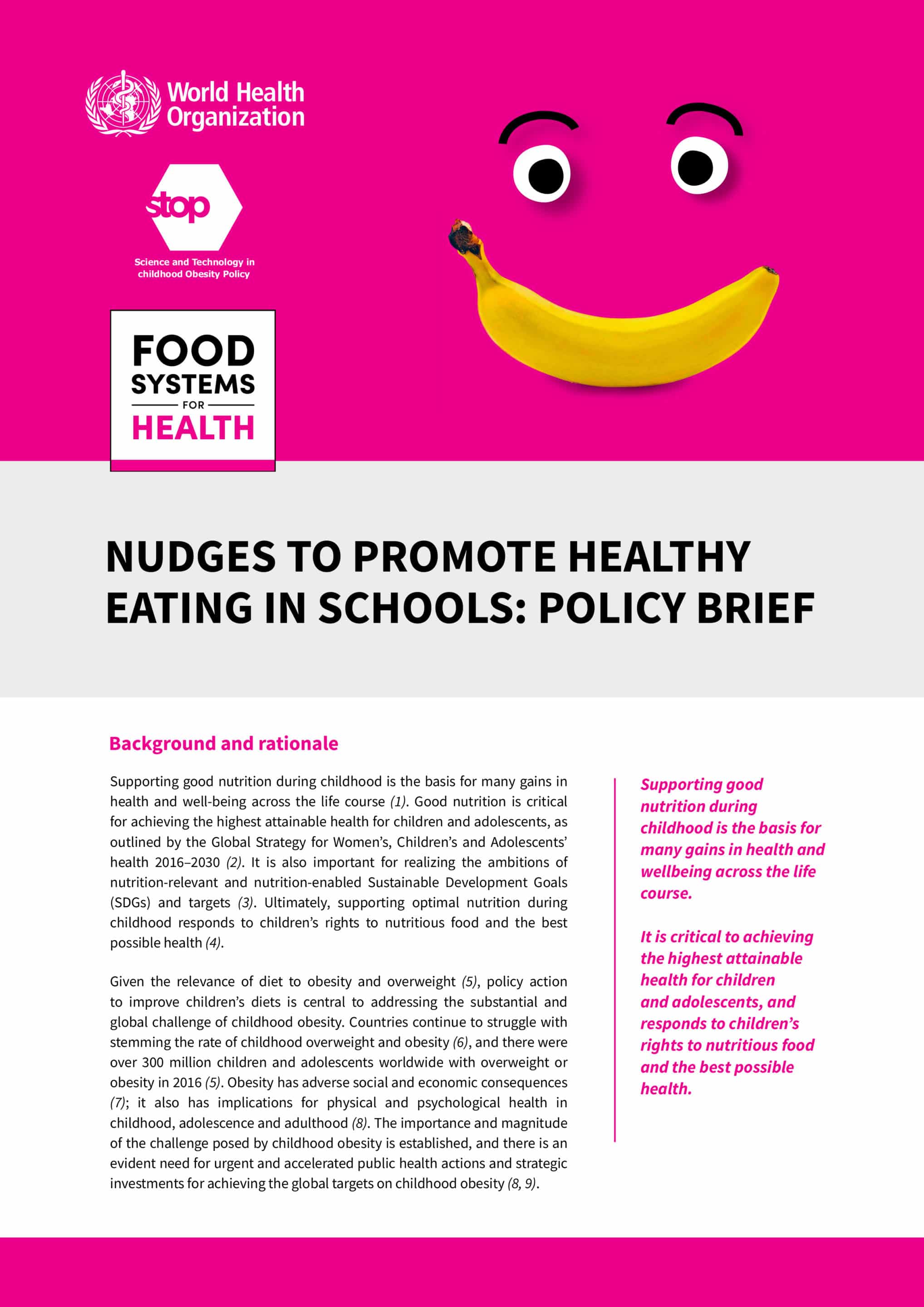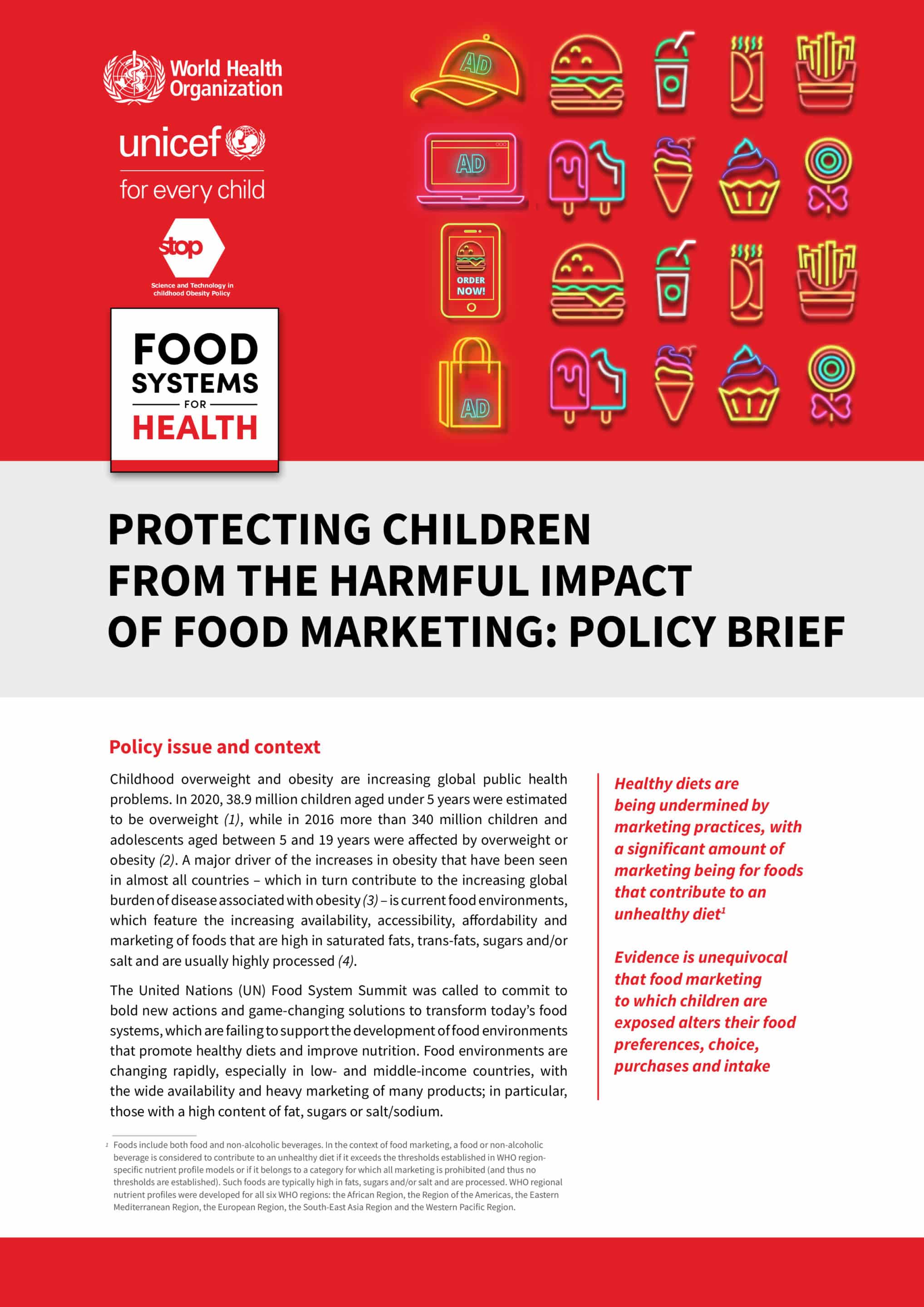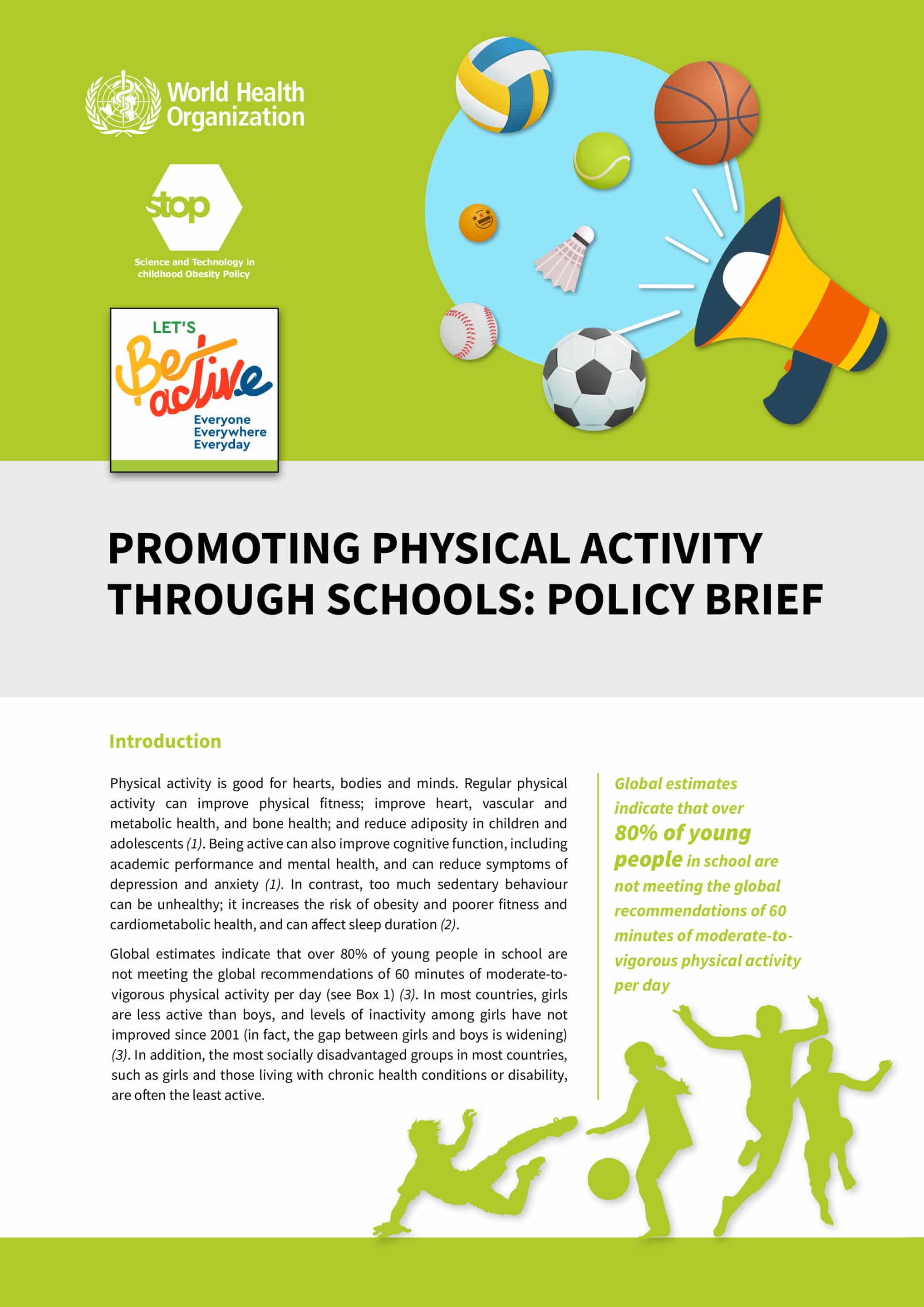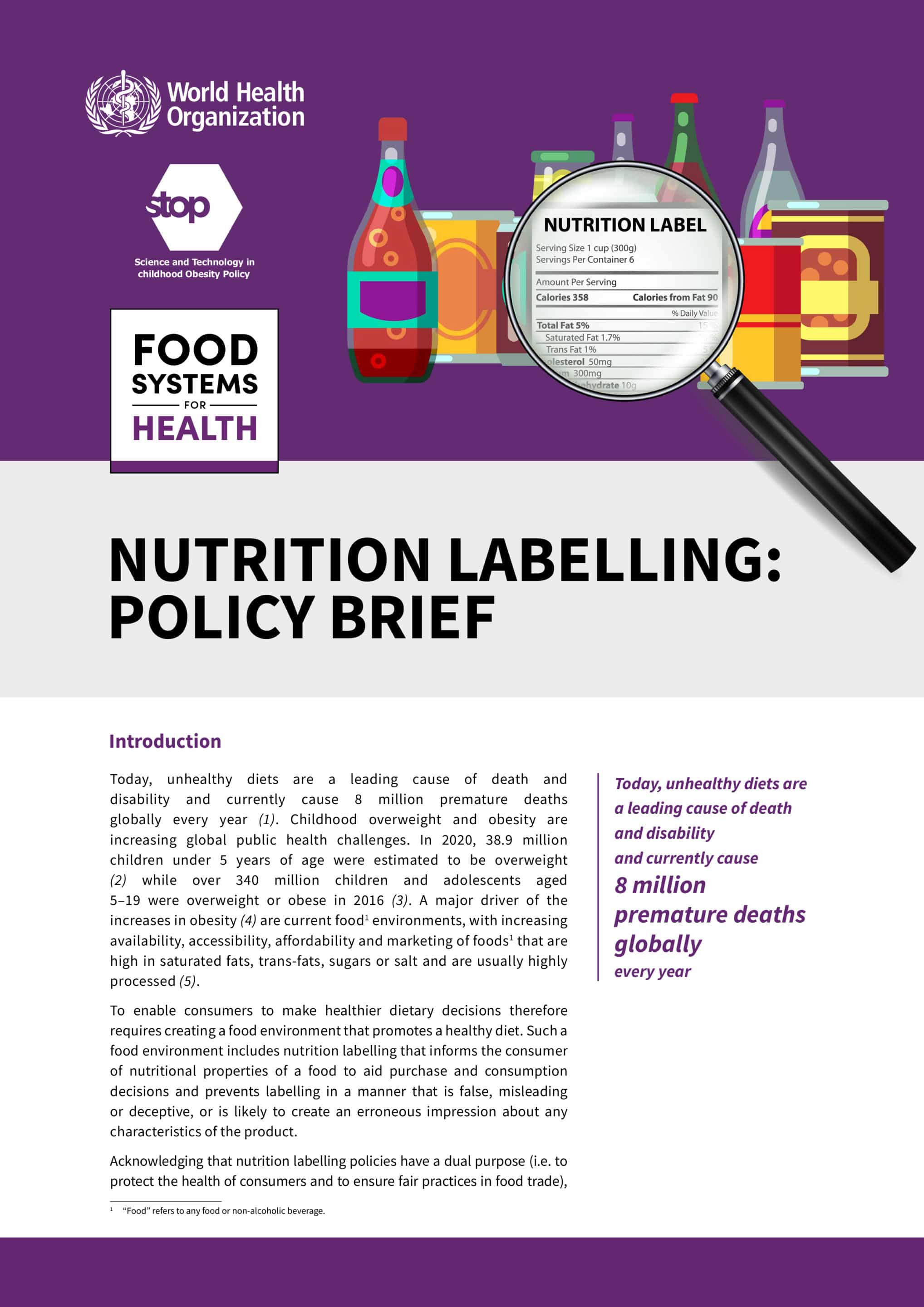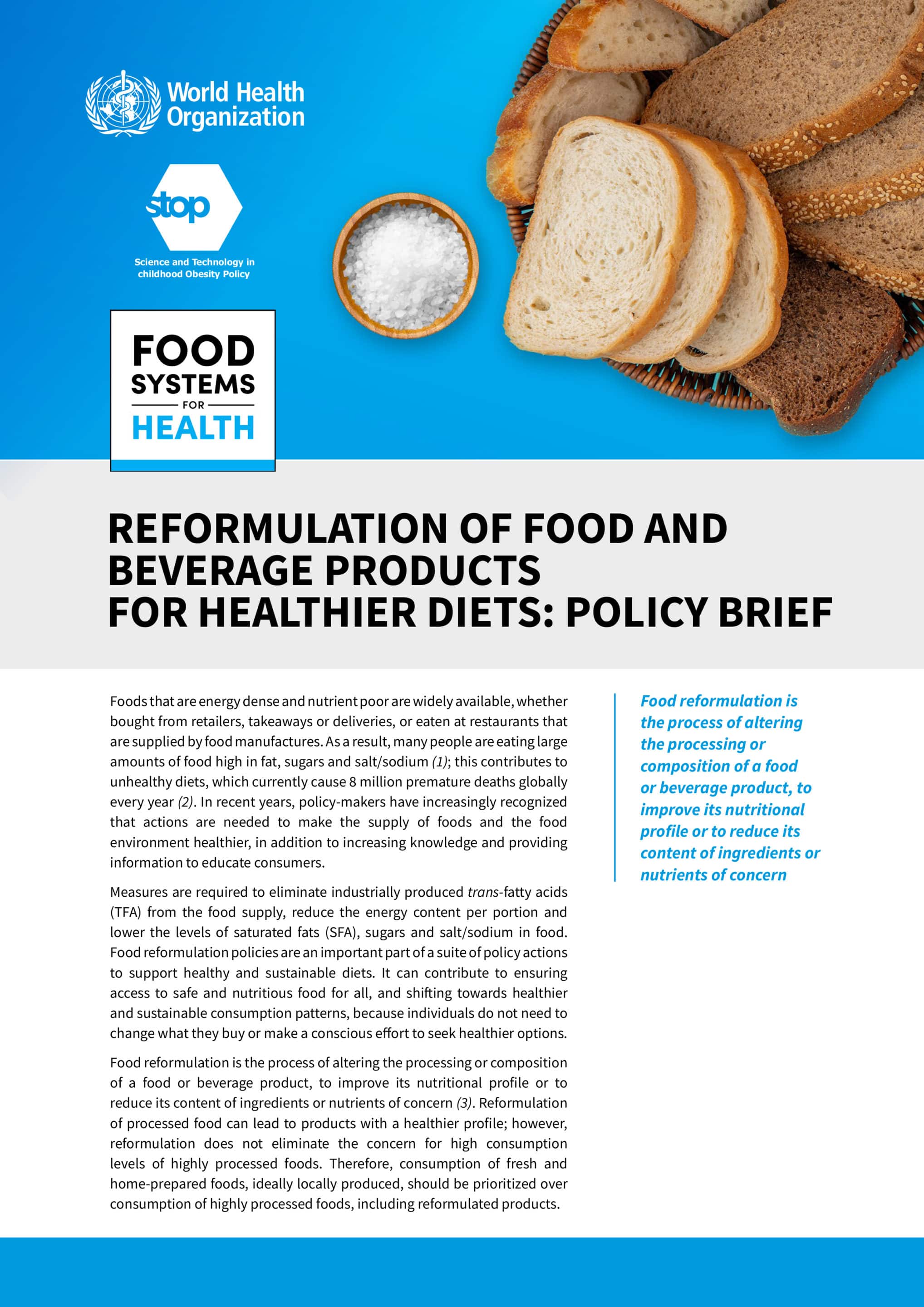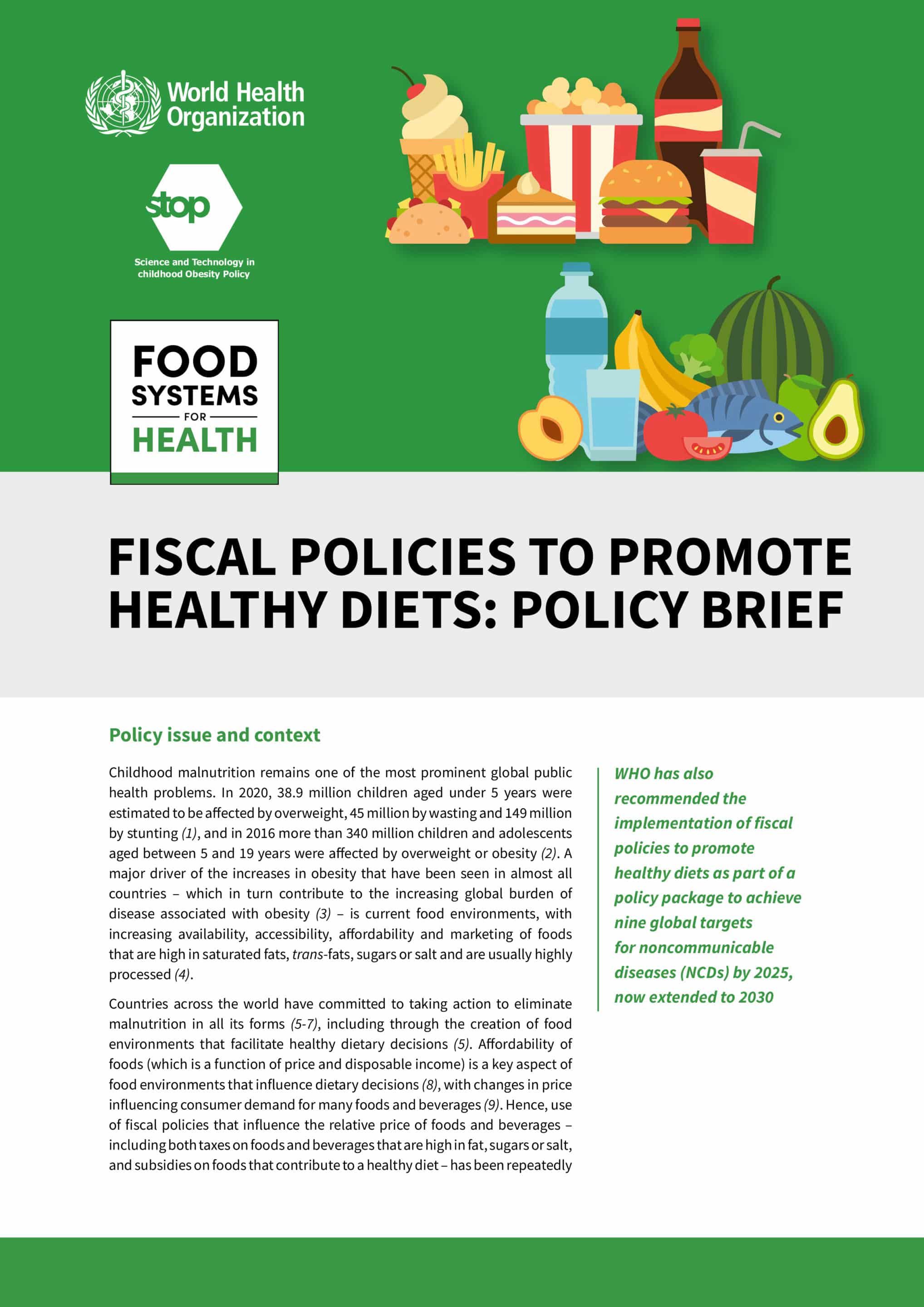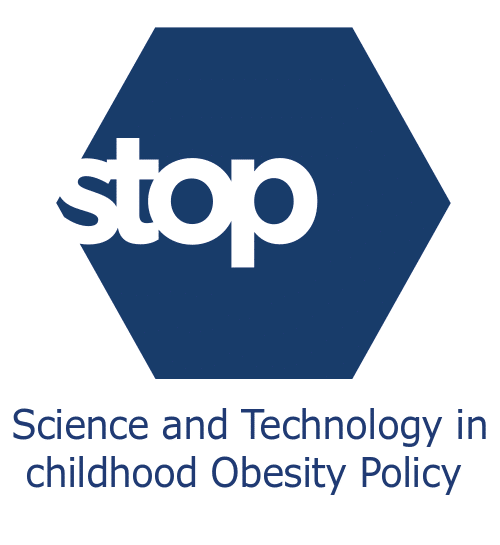How can recommended policies be effectively implemented to improve the environments we live in? A question asked by many policymakers, and one that a new set of toolkits from WHO and STOP project hope to answer.
On June 16, a new set of toolkits have been published by the STOP Project and the World Health Organization (WHO), to help enable policy makers to establish and implement priority policy options to address childhood obesity and improve health across Europe.
The policy briefs cover a number of priority policy areas and serve as toolkits for improving health such as nutrition labelling, fiscal policies, reformulation, marketing restrictions, and physical activity in schools, as well as nudge policies. Each of these topics has been extensively researched as part of the STOP project, allowing us to better understand the potential of such policies to improve health, and a number of the wider factors that may impact policy success.
Each of the toolkits are tailored to the specific policy area it focuses on, covering a mix of key considerations, relevant implementation frameworks, country case studies and, where appropriate, some of the arguments and counter arguments that policymakers may face when trying to implement the policy. The toolkits aim to support policymakers working at various levels of governments and have the potential to support them with their policy design and implementation and give them the confidence to take action.
Francesca Branca from the World Health Organization says:
“When implementing policies, oftentimes, countries know ‘what’ they should do, but they are less sure about ‘how’ to do so. Some countries, especially in the EU, are pioneers in these policy areas and have years of experience – meeting bottle necks and challenges, addressing them through trials and errors. The policy briefs are based on such critical experience and know-how of countries as well as the most up-to-date evidence and research that will be useful for policy makers who are embarking on a policy effort to combat childhood obesity.”
The toolkits have been launched at a policy symposium ‘Future directions for nutrition and physical activity policies to prevent NCDs across Europe’ held in Brussels last week, a conference jointly organised by four EU projects – STOP, CO-CREATE, PEN and Best ReMap, where many of the themes covered by the toolkits have been discussed.
For enquiries please contact:
Hannah Brinsden, Director of Policy, World Obesity Federation and Dissemination Lead for STOP Project. Email: hbrinsden@worldobesity.org
Rain Yamamoto, Scientist, Department of Nutrition and Food Safety, World Health Organization. Email: yamamotor@who.int
About the STOP project:
Led by Imperial College London and part of the Horizon 2020 programme, the Science and Technology in childhood Obesity Policy (STOP) is a four-year European Commission-funded project which brings together 31 international research, advocacy and governmental organisations from 16 countries to generate scientifically sound and policy-relevant evidence on the factors that have contributed to the spread of childhood obesity in European countries, and on the effects of alternative policy options available to address them. The project engages international partners from different policy-contexts in the United Kingdom, Italy, Estonia, Romania, Portugal, France, Belgium, Slovenia, Sweden, Croatia, Spain, Finland, Switzerland, with additional partners in New Zealand and the USA. For more information about the STOP project, visit http://www.stopchildobesity.eu/
The project is operating under grant agreement: 774548

